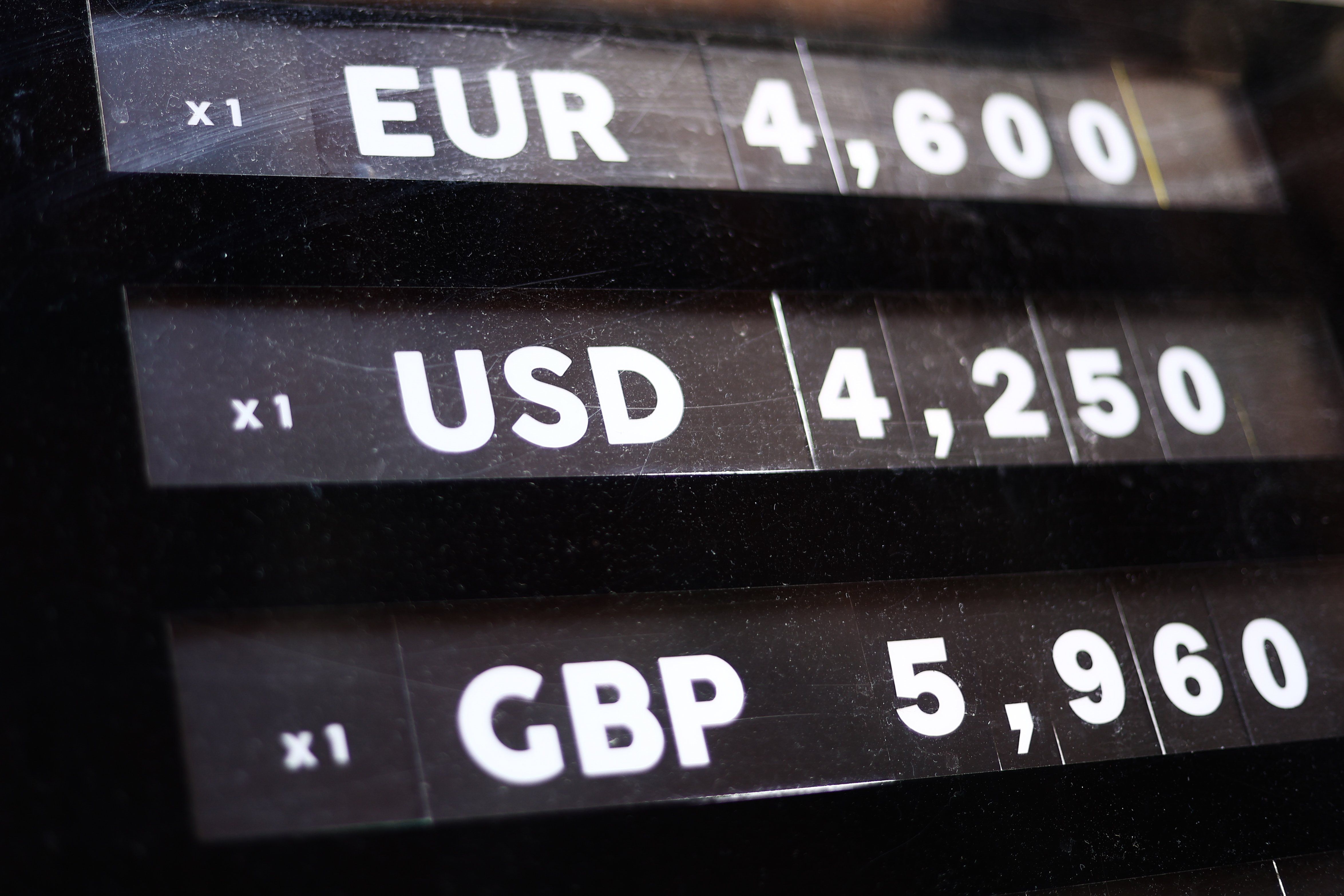Rapid inflation has been hitting the headlines and consumers' pocketbooks in the US and the EU for two years. But now it seems like the tide could be turning — in America at least.
Last week, the US Federal Reserve paused its interest rate hikes for the first time in 15 months. Meanwhile, the European Central Bank increased rates to their highest point in over 20 years, and signaled another hike to come next month.
Both US and EU annual inflation declined last month, now standing at 4% and 6.1%, respectively. That’s much lower than a year ago, but still above the 2-3% target that central banks aim for.
What’s different about how the US and EU economies — and central banks — are faring in the inflation fight?
Oil and gas prices declined last month, easing inflation in both economic zones. But for the US, oil being priced in dollars and the dollar itself gaining strength, meant that oil was more expensive for other currencies, to the detriment of the euro. The US also upped its domestic energy supply, making gas and grocery items — which depend a lot on energy prices — less expensive.
The EU doesn’t have the luxury of cheap domestic energy, so high energy prices have proved more intractable after they lost access to Russian oil. The war in Ukraine has also caused food prices in Europe soar above other advanced economies, in part due to a severe drought in Spain. The EU also saw a decline in food prices this month, but only to a still-painful 15%.
The takeaway: The US economy is more dynamic — loosely defined as more open to risk — than the EU’s, so change, both good and bad, happens faster. That means disruptions like inflation will hit the US sooner, but also allow it to recover quicker.
Yet wage growth, which is a major contributor to price increases, is still high in both economies. Wage pressures have led the ECB to predict that detrimentally high inflation will continue through 2025 — even with more rate hikes on the horizon.
The real difference lies in how the two countries are navigating the final stage of the inflation fight. While they have pushed down inflation from high to moderate levels, historically, getting from moderate to low is a lot harder.
The ECB isn’t seeing inflation fall from other economic factors like the US. So with rate increases as its only weapon, it's forging ahead with hikes despite evidence that the eurozone slipped into a technical recession earlier in June.
For its part, the Fed can afford to push pause — for now — on interest rate hikes, which have been blamed for recent turmoil in the banking sector. Two more hikes are expected by the end of the year, but America’s central bank is taking its time to make sure it doesn't tank the economy in the process of taming inflation.
